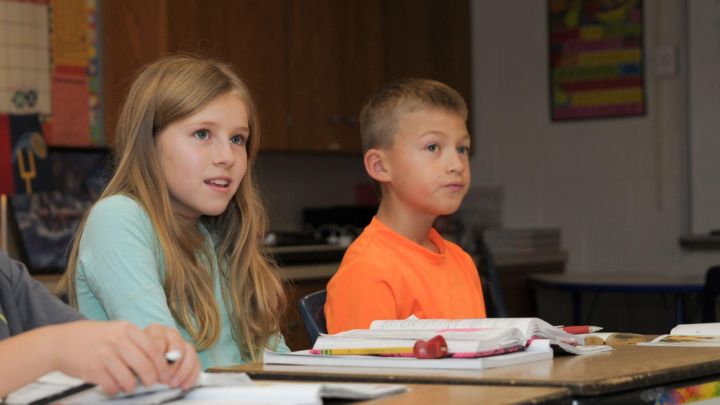Tips for a Smooth Independence Day Celebration
It is almost Independence Day in the United States, which, for many families, is a time of festivity and celebration as we commemorate the nation’s independence with colorful parades, juicy BBQs, loud concerts, and booming fireworks. These activities can bring many changes in routine and sensory stimulations that may be exciting for some individuals but difficult for others. All Belong teacher consultant Marji Voetberg offers eight tips for helping all family members be prepared and equipped for your Fourth of July celebration.

1. Prepare children for what to expect.
Preview what the day will look like by showing pictures from a previous year (if available) and YouTube videos about what to expect during the day. Describe what your son or daughter might see, hear, taste, etc. throughout the day. If necessary, discuss that the noises from fireworks are not dangerous sounds. You could include these items in a personalized SocialStory (see an example here) highlighting the day’s activities.
2. Acknowledge feelings.
Recognize that exciting activities can cause children to feel the same way as stressful, anxiety-producing situations. Acknowledge that those feelings are real, and remember that when interacting with your child.
3. Have a plan.
Explain to your children how you expect to stay together at the event. For example, will everyone wear the same colored shirt? Or stay within a certain distance? Be sure to share what to do if you get split up.
Also, make a plan with your child to express any fear they may have during the fireworks display. For example, you could ask your child whether they would like to squeeze your hand as tightly as possible if they have scared feelings or give their favorite stuffed animal a big hug. This allows your child to preview appropriate ways to handle unsettling feelings and gives them control over how they want to express them.
4. Bring the right tools.
Especially for fireworks, it may be helpful to bring blankets (wrap your child in for deep pressure), earplugs, sunglasses, etc. These tools can provide sensory input breaks or decreased input.
5. Use a camera.
If you’re headed to fireworks or an event with a lot of commotion, bring a camera that your son or daughter could use. Looking through the camera at the event brings the focus to one object/event and may help your child feel less overwhelmed by everything taking place.
6. Talk about food.
Be sure to discuss candy consumption guidelines in advance. This is particularly important if your son or daughter has any food allergies.
7. Think ahead.
In general, think about what triggers your child may experience at any of the celebratory events. Prepare your child and yourself for handling those triggers.
8. Lead with smiles and joy.
If your child sees you are having fun, they will be more likely to match your mood.
Alternately, some families prefer to avoid Fourth of July celebrations because of the excitement. For these families, it may be a good idea to shut your windows and turn on any fans as loud as possible in the evening. Find a fun family activity or movie to enjoy that allows your family to spend quality time together indoors.
Regardless of what your family does, the main goal is to plan ahead for the holiday and prepare your family for what to expect.
Firework photo by Shireah Ragnar on Unsplash

Marji Voetberg
Teacher Consultant and Educational Resources Manager
Marji Voetberg, a Teacher Consultant and Educational Resources Manager at All Belong, has spent over 25 years working in Christian inclusive education environments. Marji's passion for the beauty and benefits of an inclusive environment for all God's children has only increased throughout these years. When not at work, Marji can be found hiking, biking, walking, or cheering her kids on at their events.
